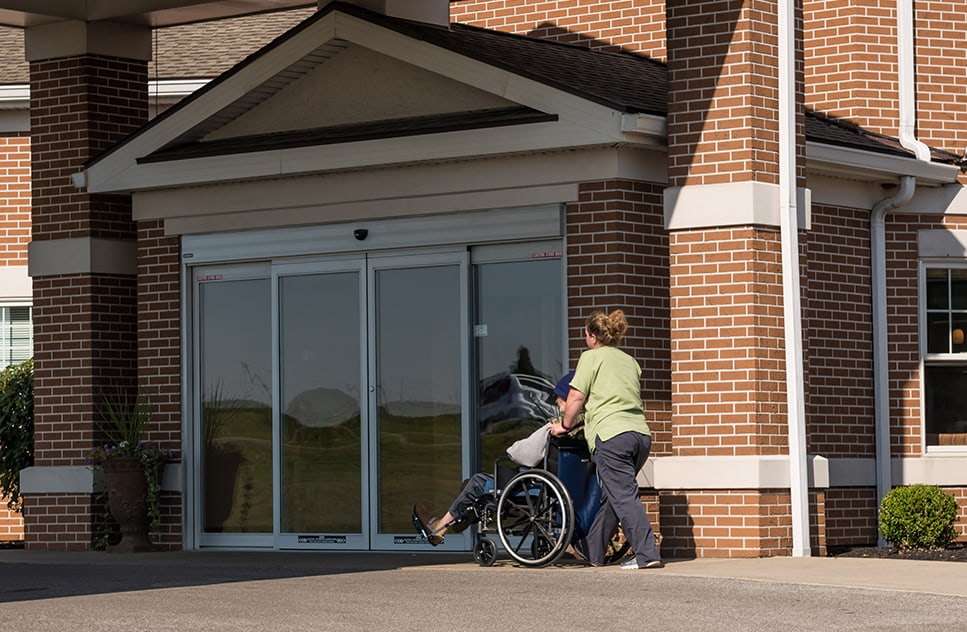Navigating the complexities of healthcare can be daunting, especially when it comes to deciding if a loved one or patient needs skilled nursing care. Medical necessity, rehabilitation needs, and complex treatments typically require skilled nursing care so that professional caregivers can address any clinical issues that may come up.
Understanding Skilled Nursing Care
Skilled nursing care encompasses a variety of high-level medical services provided by trained healthcare professionals, including registered nurses (RNs), licensed practical nurses (LPNs), and physical or occupational therapists.
A study by the University of Chicago found that skilled nursing care provides patients with the tools necessary to aid recovery and avoid worsening health outcomes. These services go beyond providing basic needs, allowing trained caregivers to monitor medical conditions, provide treatments, and assist in rehabilitation.
Key Criteria for Skilled Nursing Care
1. Medical Necessity
One of the primary factors that qualifies a person for skilled nursing care is medical necessity. This means the patient requires medical treatment that cannot be safely provided at home or through outpatient services. Examples of situations that warrant specialized care include:
- Post-Surgical Recovery: Patients recovering from major surgeries often need skilled nursing care to monitor vital signs, manage pain, and prevent complications.
- Chronic Illness Management: Conditions such as heart failure, diabetes, or COPD may require ongoing medical attention and interventions.
- Complex Wound Care: Patients with severe wounds, pressure ulcers, or surgical incisions may need skilled nursing for proper wound management and healing.
2. Rehabilitation Needs
Patients needing rehabilitation services such as physical, speech, or occupational therapy may qualify for skilled nursing care. This is particularly common for:
- Stroke Recovery: Intensive rehabilitation to regain mobility, speech, and daily functioning.
- Orthopedic Injuries: Rehabilitative care following fractures, joint replacements, or severe injuries.
- Neurological Disorders: Conditions like Parkinson’s disease or multiple sclerosis that require specialized therapeutic interventions.
3. Intravenous (IV) Therapy
Patients needing IV medications, nutrition, or fluids often require skilled nursing care to ensure proper administration and monitoring. Indications include:
- Infections: Conditions like sepsis or severe pneumonia that require prolonged IV antibiotics.
- Chemotherapy: Cancer patients undergoing chemotherapy treatments.
- Dehydration: Severe cases requiring IV fluid replacement.
4. Monitoring and Managing Complex Medication Regimens
Patients with complex medication regimens, particularly those involving potentially dangerous drugs like anticoagulants or insulin, may need skilled nursing care to ensure proper dosing and monitoring.
5. Significant Changes in Health Status
Sudden or significant changes in a patient’s health status, such as acute illness, exacerbation of chronic conditions, or rapid functional decline, may necessitate skilled nursing care for stabilization and management.

Benefits of Skilled Nursing Care
Understanding the benefits can help clarify why skilled nursing care may be the best option for certain patients:
- Professional Supervision: Continuous monitoring by healthcare professionals ensures timely interventions and reduces the risk of complications.
- Comprehensive Care: Specialized support involving various healthcare professionals helps address all aspects of patient health.
- Rehabilitation Support: Access to speech and occupational therapies promotes recovery and independence.
- Peace of Mind: Know that a loved one is receiving expert care in a safe and supportive environment.
The Path Towards The Right Care For Your Needs
Determining if a patient qualifies for skilled nursing care involves evaluating the medical necessity, their rehabilitation needs, and the complexity of their medication regimens and treatment plans. For family caregivers and healthcare professionals, understanding these criteria ensures that patients receive the appropriate level of care to support their health and well-being.
If you want to learn more about how skilled nursing care can benefit your loved one, reach out to our team at Kingston of Ashland. We would love to see how we can help you and your family.






